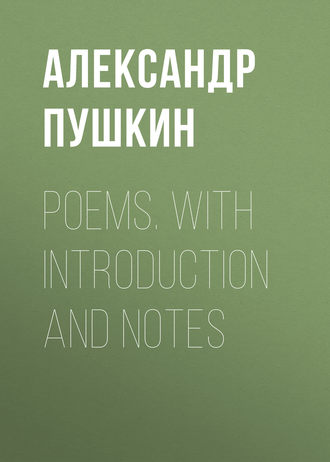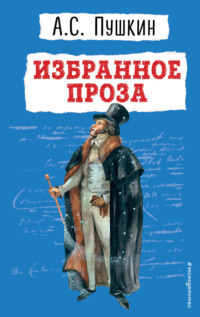 полная версия
полная версияPoems. With Introduction and Notes
11. What is it that makes the water, when spouting forth in a smooth stream from the hose, such a power? What is it that makes the beauty of the stem and curve of the body of water, as it leaps out of the fountain? It is the same water which a few yards back we can see flowing aimless in stream or pond. Yes, but it is the concentration of the loose elements into harmonious shape, whether for utility, as in the case of the hose-spout, or for beauty, as in the case of the fountain. Nought new is added to the mass existing before. This is precisely the case of genius. He adds nought to what has gone before him. He merely arranges, formulates. A vast unorganized mass of intelligence, of aspiration, of feeling, becomes diffused over mankind. Soon it seeks organization. The poet, the prophet, the seer, cometh, and lo, he becomes the magnet round which all spiritual force of the time groups itself in visible shape, in formulated language.
12. Pushkin, then, is self-centred; but it is the self that is not Pushkin, but man. His mood is others' mood; and in singing of his life, he sings of the life of all men. The demon he sings of in the poem called "My Demon" is not so much his demon alone as also yours, mine, ours. It is his demon because it is all men's demon.
"A certain evil spirit thenBegan in secret me to visit.Grievous were our meetings,His smile, and his wonderful glance,His speeches, these so stinging,Cold poison poured into my soul.Providence with slanderInexhaustible he tempted;Of Beauty as a dream he spakeAnd inspiration he despised;Nor love, nor freedom trusted he,On life with scorn he looked—And nought in all natureTo bless he ever wished."And this demon—"the Spirit of Denial, the Spirit of Doubt"—of which he sings afterwards so pathetically tormented him long. He began with "Questionings:"—
"Useless gift, accidental gift,Life, why art thou given me?Or, why by fate mysteriousTo torture art thou doomed?"Who with hostile power meOut has called from the nought?Who my soul with passion thrilled,Who my spirit with doubt has filled?…"And he continues with "Sleeplessness:"—
"I cannot sleep, I have no light;Darkness 'bout me, and sleep is slow;The beat monotonous aloneNear me of the clock is heardOf the Fates the womanish babble,Of sleeping night the trembling,Of life the mice-like running-about,—Why disturbing me art thou?What art thou, O tedious whisper?The reproaches, or the murmurOf the day by me misspent?What from me wilt thou have?Art thou calling or prophesying?Thee I wish to understand,Thy tongue obscure I study now."13. And this demon gives him no rest, even long after he had found the answer,—that the meaning of Life is in Work. Solve the problem of life? Live, and you solve it; and to live means to do. But that work was the solution of the problem of life he indeed discerned but vaguely. It was with him not yet conscious fulfilment. He had not yet formulated to himself the gospel he unconsciously obeyed. Hence the wavering of the "Task:"—
"The longed-for moment here is. Ended is my long-yeared task.Why then sadness strange me troubles secretly?My task done, like needless hireling am I to stand,My wage in hand, to other task a stranger?Or my task regret I, of night companion silent mine,Gold Aurora's friend, the friend of my sacred household gods?"14. And for the same reason, when he had ceased to be a roamer and at last settled down to quiet home-life, the memory of the days of yore still gives him a pang; and at the sight of the gypsies, whose free and easy life once occupied his thoughts seriously, not only to sing of them, but to live with them, only a plaintive note bursts forth from his soul:—
"Thee I greet, O happy race!I recognize thy blazes,I myself at other timesThese tents would have followed."With the early rays to-morrowShall disappear your freedom's trace,Go you will—but not with youLonger go shall the bard of you."He alas, the changing lodgings,And the pranks of days of yoreHas forgot for rural comfortsAnd for the quiet of a home."15. And this too when these same "rural comforts" he now regrets to have taken in exchange for his wanderings were the very circumstances he sighed for when he did lead the free life he now envies the gypsies for. For this is what he then had been singing:
"Mayhap not long am destined IIn exile peaceful to remain,Of dear days of yore to sighAnd rustic muse in quietWith spirit calm to pursue."But even far, in a foreign landIn thought forever roam I shallAround Trimountain mine:By meadows, river, by its hills,By garden, linden, nigh the house."16. No wonder, therefore, that the demon, having unsettled the poet's soul with restlessness, should now unsettle his reasoning powers with regrets. For regret is at bottom a disease, an inability to perceive that the best way to mend harm once done is not in lamenting the past, but in struggling for a future; in which future much of the past could be undone; or if it could not be undone, at least it could be prevented from contaminating with its corpse the life of the future. And his regret is bitter enough. In the first of the two poems, "Regret" and "Reminiscence," the feeling again is as yet only discernment; but in the second, the poison has already entered his soul, and accordingly it no longer is a song, but a cry of agony....
At first it is is only—
"But where are ye, O moments tenderOf young my hopes, of heartfelt peace?The former heat and grace of inspiration?Come again, O ye, of spring my years!"But later it becomes—
"Before me memory in silenceIts lengthy roll unfolds,And with disgust my life I readingTremble I and curse it.Bitterly I moan, and bitterly my tears I shedBut wash away the lines of grief I cannot.In laziness, in senseless feasts,In the madness of ruinous license,In thraldom, poverty, and homeless desertsMy wasted years there I behold...."17. Regret, in itself a disease, but only of the intellect, soon changes into a more violent disease: into a disease of the constitution, which is fear, fear of insanity. In ordinary minds such disease takes the form of fear for the future, of worry for existence; in extraordinary minds it takes more ghastly shapes,—distrust of friends, and dread of the close embrace of what is already stretching forth its claws after the soul,—insanity.
Hence,—
"God grant I grow not insane:No, better the stick and beggar's bag;No, better toil and hunger bear.. . . . . . . . . .If crazy once,A fright thou art like pestilence,And locked up now shalt thou be."To a chain thee, fool, they 'll fastenAnd through the gate, a circus beast,Thee to nettle the people come."And at night not hear shall IClear the voice of nightingaleNor the forest's hollow sound,"But cries alone of companions mineAnd the scolding guards of nightAnd a whizzing, of chains a ringing."18. That thoughts of death should now be his companions is only to be expected. But here again his muse plainly sings itself out in both stages,—the stage of discernment and the stage of fulfilment. In the first of the two poems, "Elegy" and "Death-Thoughts" he only thinks of death; in the second he already longs for it.
In the first it is only—
"My wishes I have survived,My ambition I have outgrown!Left only is my smart,The fruit of emptiness of heart."Under the storm of cruel FateFaded has my blooming crown!Sad I live and lonely,And wait: Is nigh my end?"But in the second it already becomes—
"Whether I roam along the noisy streetsWhether I enter the peopled temple,Whether I sit by thoughtless youth,Haunt my thoughts me everywhere."I say, Swiftly go the years by:However great our number now,Must all descend the eternal vaults,—Already struck has some one's hour.. . . . . . . . . ."Every year thus, every dayWith death my thought I joinOf coming death the dayI seek among them to divine."19. Pushkin died young; that he would have conquered his demon in time there is every reason to believe, though the fact that he had not yet conquered him at the age of thirty-eight must show the tremendous force of bad blood, and still worse circumstance, which combined made the demon of Pushkin. But already he shows signs of having seen the promised land.
In the three poems, "Resurrection," "The Birdlet" (iv. 133), and "Consolation," the first shows that he conquered his regret-disease; the second, that he already found in Love some consolation for sorrow. And the third shows that he already felt his way at least to some peace, even though it be not yet faith in the future, but only hope. For hope is not yet knowledge; it only trusts that the future will be good. Faith knows that the future must be good, because it is in the hands of God, the Good.
In the first it is—
"Thus my failings vanish tooFrom my wearied soulAnd again within it visions riseOf my early purer days."In the second,—
"And now I too have consolation:Wherefore murmur against my GodWhen at least to one living beingI could of freedom make a gift?"And in the last,—
"In the future lives the heart:Is the present sad indeed?'T is but a moment, all will pass...."This is consoling utterance, but not yet of the highest; and the loftiest spiritual song, the song of the Psalmist, was not given unto Pushkin to sing.
III. GENERAL CHARACTERISTICS20. I have translated the poems of Pushkin not so much because they are masterpieces in the literature of Russia, as because I think the English reading-public has much to learn from him. English literature is already blessed with masterpieces, which, if readers would only be content to study them for the sake of what they have to impart (not amuse with!), would give enough employment as well as amusement for all the time an ordinary reader can give to literature. So that merely for the sake of making new beauty accessible to English readers, it is hardly worth while to go out of English literature, and drag over from beyond the Atlantic poor Pushkin as a new beast in a circus for admiration. The craze for novelty has its place in human nature but not as an end in itself. As a literary method, it might be found commendable in a magazine editor, whose highest ambition is to follow the standard of a public even he does not respect. It might be found commendable in a gifted author to whom bread is dearer than his genius, so that he is ready to sacrifice the one to the other; but an inexperienced author, who has not yet learned wisdom (or is it prudence merely?) from the bitter literary disappointments which are surely in store for every earnest, aspiring soul,—such an author, I say,—must not be expected to make mere novelty his motive for serious work. Nay, the conclusion at which Pascal arrived, at the age of twenty-six, that there is really only one book that to an earnest soul is sufficient for a lifetime to read,—namely, the Bible,—extravagant though this sound, I am ready, after many years of reflection on this saying of Pascal, to subscribe to, even at an age when I have six years of experience additional to his.... To read much, but not many books, is old wisdom, yet ever new. A literary masterpiece is to be read, not once, nor twice, nor thrice, but scores of times. A literary masterpiece should, like true love, grow dearer with intercourse. A literary masterpiece should be read and re-read until it has become part of our flesh and circulates in our blood, until its purity, its loftiness, its wisdom, utter itself in our every deed. It is this devotion to one book that has made the Puritans of such heroic mould; they fed on one book until they talked and walked and lived out their spiritual food. If any one think this estimate of the influence of one great book exaggerated, let him try to live for one week in succession wholly in the spirit of the one book that to him is the book (I will not quarrel with him if it be Smiles instead of St. Matthew, or Malthus's Essay on Population instead of the Gospel of St. John, or even our modern realistic Gospel of dirt), and let him see what will come of it.
21. Shakespeare, Milton, Carlyle, Ruskin, Emerson, Scott, Goldsmith, Irving, Johnson, Addison, furnish a library which is really enough for the life-time of any one who takes life seriously, and comes to these masters, not as a conceited lord waiting for amusement,—as a judge, in short,—but as a beggar, an humble learner, hoping to carry away from them not the tickle of pleasure, but the life-giving sustenance. To make letters a source of amusement is but to dig for iron with a spade of gold. Amusement is indeed often necessary, just as roasting eggs is often necessary; but who would travel to a volcano for the sake of roasting his eggs? No, the masters in letters are not sent to us for our amusement; they are sent to us to give the one answer to each of us, which at the peril of our lives we must sooner or later receive,—the answer to the question: How shall we live to be worthy of that spark from heaven which is given us in trust to keep alive for the brief years of life on earth? The great masters, then, are the inspirers; and God ever sees to it that there be enough inspirers, if men but see to it that there be enough inspired.
22. But of the millions of the English-speaking readers, who to-day assimilates the masterpieces of English literature? Generations come, and generations go. The classic writers keep their reputation; but do they hold their readers? Do the readers hold to the masters? Not the masters sway the public taste, not the writers of the first rank, not the giants; but the pygmies, the minions, the men of the second, fifth, twentieth rank. If any one think me extravagant, let him cast a glance of his open eyes at our monthly reviews and magazines, both here and in England, especially those whose circulation reaches into the hundreds of thousands....
23. Not, then, because additional masterpieces are needed for rousing our degenerate literary taste have I translated Pushkin. As long as the literary editors (who, from the very fact of once having the ear of the public, become the stewards of the hungry) insist on feeding it with the Roes and the Crawfords and the Haggards and the Stevensons and the rest of them, not only new masterpieces, but even the old ones will remain unread. The Bible lies on parlor table (if it ever get there!) unread; Milton lies indeed beautifully bound, but has to be dusted once a week; and Emerson need not even be dusted,—he has not yet got as far as to be the ornament of parlor table.
But I have translated Pushkin because I believe that even the masters of English literature have defects which are part of the English character; and as such they must reappear in its literature. And it is against these that Pushkin's poems offer a healthy remedy.
24. For the first characteristic of the Anglo-Saxon race is that it is a race of talkers; and the destinies of the two most advanced nations of that race are to-day governed almost wholly by men whose strength is neither in the head nor in the will nor in the heart, but in the tongue. But the talker cares only for the effect of the moment. With the great hereafter he has but little to do; hence he becomes, first of all, a resounder, a thunderer, a sky-rockety dazzler. And once that, the orator need not even care whether he persuade or not; if he merely astound the ear, dazzle the eye, and overwhelm the hearer himself for the moment,—if, in short, he but produce an effect, even if it be not the effect desired,—it is well with him in his own estimation. The orator thus soon becomes the mere rhetorician. And this rhetorical quality, appealing as it does only to the superficial in man, and coming as it does only from the surface of the man, is found nowhere in such excess as in the poetry of the Anglo-Saxon race. Ornament, metaphor, must be had, and if it cannot be had spontaneously from a fervid imagination, which alone is the legitimate producer of metaphor, recourse must be had to manufactured sound. Hence there is scarcely a single poet in the English tongue whose style is not vitiated by false metaphor; this is true of the greatest as well as of the least. The member of Parliament who smelt a rat, and saw it brewing in the air until it was in danger of becoming an apple of discord to the honorable members of the House, could have been born only on British soil. To take up arms against a sea of trouble, and to discover footprints in the sands of time while sailing over life's solemn main (no less than five false metaphors in this example from the Psalm of Life!) are feats that can be accomplished by the imagination of even a Shakespeare or a Longfellow solely because these are Anglo-Saxons. And I am yet to see five consecutive pages of any Anglo-Saxon poet free from this literary vice of false metaphor! I call this a vice because it is at bottom an insincerity of imagination. The false metaphors are not pictures seen, but pictures made up; they are not the spontaneous outbursts of an overflowing imagination, but the ground-out product of pictureless will for the sake of effect. And this I do not hesitate to call literary insincerity even though the process of making them up be unconscious at the time to the poet himself.
25. Now it is Pushkin's great virtue that his imagination is eminently spontaneous. He seldom uses adjectives; but when he does use them, he uses such only as do actually describe something. He seldom uses similes or metaphors,—he prefers to sing of the subjects themselves, not of what they resemble; but when he does use them, the reader's imagination is able to see the picture the poet had in mind, which is not often true of the English bards. Examples for comparison are innumerable; let a few suffice. Turn to Pushkin's lines, "Regret." He there regrets the days of his youth, but first tells by way of contrast what he does not regret; and his poem is simple, straightforward. Byron, however, in his "Stanzas for Music," of which Canon Farrar thought well enough to insert them in his "With the Poets," and Mr. Palgrave thinks good enough to be admitted into his "Treasury of English Poetry," finds it necessary to preface it with something like philosophical remarks, and then proceeds in this fashion:—
"Then the few whose spirits float above the wreck of happinessAre driven o'er the shoals of guilt or ocean of excess:The magnet of their course is gone, or only points in vainThe shore to which their shivered sail shall never stretch again."Then the mortal coldness of the soul till death itself comes down;It cannot feel for other's woes, it dare not dream it's own.That heavy chill has frozen o'er the fountain of our tears,And though the eye may sparkle still, 't is where the ice appears,"Oh, could I feel as I have felt, or be what I have been,Or weep as I could once have wept o'er many a vanished scene,As springs in deserts found seem sweet, all brackish though they be,So midst the withered waste of life, those tears would flow to me."One must go to Shakespeare's Sonnets for poetry as false as this. Among writers with the true poetic feeling, such as Byron truly had, I know not the like of this except these. Of these twelve lines only the first two of the last stanza are true, are felt; the rest are made. How are we, not Arabs but English-talking folk, to know the springs which in deserts found seem (do they?) sweet, brackish though they be? And Byron was a poet! But even a Byron cannot make a shivered sail or a coldness of a soul which is mortal, or a chill that freezes over a fountain of tears anything but mere verbiage, and verbiage moreover which instead of the intended sadness is dangerously nigh raising laughter....
26. Again, take Longfellow's "Hymn to Night:"—
"I heard the trailing garments of the nightSweep through her marble halls!I saw her sable skirts all fringed with lightFrom the celestial walls.. . . . . . . . . .From the cool cisterns of the midnight air,My spirit drank repose."For the like of this one can no longer go even to Shakespeare's Sonnets. For Shakespeare was still a poet. One must now go to Mrs. Deland, who is not even that. For observe:
Night has halls, and these halls are marble halls; and this marble-hailed Night is unable to stay at home, and must go forth, and accordingly she does go in full dress with her garments trailing with a right gracious sweep. And the bard not only sees the sable skirts which dangle about in fringes made phosphorescent by contact with the celestial walls of such peculiar marble, but he even hears the rustle.... And these halls with accommodating grace are changed into cool, deep cisterns from which accordingly the bard's spirit with due solemnity draws into his spirit's wide-opened mouth a draught of repose.
27. Turn from this "Hymn to Night" of thirty lines to the three lines of Pushkin in his "Reminiscence," which alone he devotes to Night:—
"When noisy day to mortals quiet grows,And upon the city's silent wallsNight's shadow half-transparent lies."The marble halls and the trailing garments were ground out from the writer's fingers; the half-transparent shadow of the poet came to the poet....
28. After such examples of wretchedness from real giants such as Byron and Longfellow indisputably are, I do not hesitate to ask the reader for a last example to turn first to Pushkin's "Cloud," and then read Shelley's poem on the same subject:—
"I bear light shade for the leaves when laidIn their noonday dreams. [Just how are leaves thus laid?]From my wings are shaken the dews that wakenThe sweet buds every one,When rocked to rest on their mother's breast,As she dances about in the sun."(Oh, good, my Shelley! one dances to and fro; one cannot dance in a uniform, straightforward motion. Thy imagination never saw THAT picture! Spin, whirl, rush,—yes, but dance?)
"That orbèd maiden with white fire ladenWhom mortals call the MoonGlides glimmering o'er my fleece-like floor,By the midnight breezes strewn;And wherever the beat of her unseen feetWhich only the angels hearMay have broken the woof of my tent's roof,The stars peep behind her and peer."Who has not been stirred by the sight of the fleece-like, broken clouds on a moonlight night? But who on looking up to that noble arch overhead at such a moment could see it as a floor?…
29. I call this wretched poetry, even though other critics vociferously declare Shelley's "Cloud" to be one of the masterpieces of the English language. De gustibus non disputandum. The Chinese have a liking, it is said, for black teeth, and a bulb of a nose is considered a great beauty in some parts of Africa, and a human leg is considered a great delicacy by some Islanders; but....
30. And the second characteristic of the Anglo-Saxon race, which, however valuable it may prove in practical life, is reflected disastrously in its poetry, is its incapacity to appreciate true sentiment. An Anglo-Saxon knows sentimentality when he sees it, he knows morbidness when he sees it; but the healthy sentiment of which these are but the diseases he is incapable of appreciating to a depth where it would become part of his life. Hence, though a Malthus might have written his Essay on Population anywhere, since it is a truly cosmopolitan book, a Malthusian doctrine with all that it means and stands for could have grown up only on British soil; and though the warning voice against the dangers of sentimental charity (if there really be such a thing, and if such a thing, supposing it to exist, be really dangerous!) might be lifted in any land, the hard, frigid, almost brutal doctrine of scientific charity could strike root only in London, and blossom out in full array only in a city like Boston. The reader will please observe that I do not here undertake to judge. Malthusian doctrine, scientific charity, brutality of any kind may be necessary, for aught I know. A great many well-meaning and kind-hearted people have in sober thought decided that it often is necessary. I am only stating what seems to me to be a fact. To me this is a most melancholy fact; to others it may be a joyful fact. But whether joyful or melancholy, this fact explains why so little sentiment is found among the Anglo-Saxon poets even when they feel their passions, and do not, as is usually the case with them, reason about them, or what is worse, compose far-fetched similes about them. Glimpses of sentiment are of course found now and then, but only now and then. It is not often that Wordsworth sings in such pure strains as that of the lines,—









